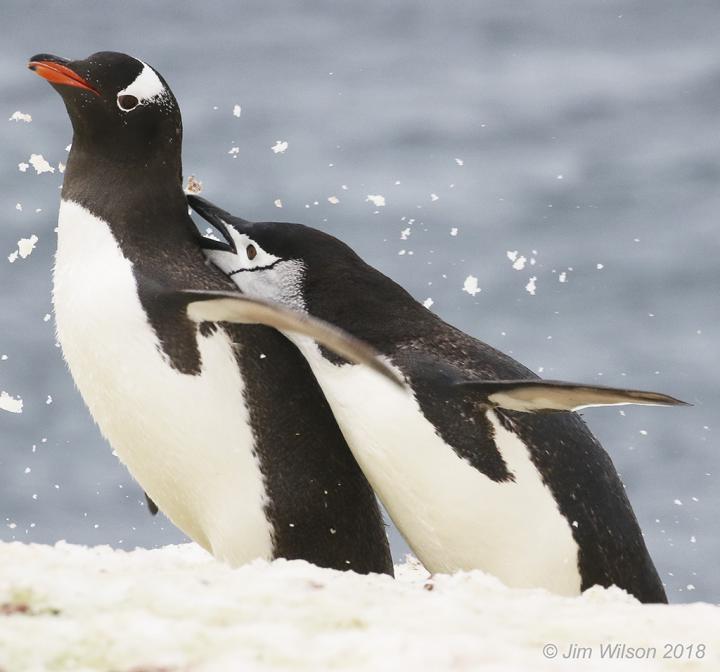
Credit: Credit: Jim Wilson ©
Eating a krill-only diet has made one variety of Antarctic penguin especially susceptible to the impacts of climate change, according to new research involving the University of Saskatchewan (USask) which sheds new light on why some penguins are winners and others losers in their rapidly changing ecosystem.
Human activities in Antarctica since the 1930s led to massive shifts in the population of krill–a shrimp-like crustacean that is a key food source for penguins, seals, and whales. The result has been that one species–gentoo penguins–thrive, while the population of chinstrap penguins dwindles, according to research published today in Proceedings of the National Academy of Sciences.
“Human activities, like hunting and global warming, are not only affecting species we routinely harvest – like krill. Gentoo penguins adapted by eating what was most available. Chinstrap penguins, picky eaters who continued to eat krill, didn’t do as well, ” said USask’s William Patterson, part of the research team co-led by Louisiana State University’s Michael Polito and Kelton McMahon from University of Rhode Island, and also involving researchers at University of Oxford and University of California, Santa Cruz.
The authors predict that the Antarctic Peninsula Region will remain a hotspot for climate change and human impacts during the next century, and believe their research will be beneficial in predicting which species are likely to fare poorly and which will withstand–or even benefit from–future changes.
“By understanding how past ecosystems respond to environmental change, we can improve our predictions of future responses and better manage human-environment interactions in Antarctica,” said McMahon.
The research team analyzed 100 years-worth of penguin feathers to determine what the penguins had eaten by measuring stable nitrogen isotope values of amino acids. For chinstrap penguins, the answer was almost exclusively krill.
“When seal and whale populations dwindled due to historic over-harvesting, it is thought to have led to a surplus of krill during the early to mid-1900s,” said Polito. The result: a population explosion for both species of penguin.
“In more recent times, the combined effects of commercial krill fishing, anthropogenic climate change, and the recovery of seal and whale populations are thought to have drastically decreased the abundance of krill.”
Gentoo penguins adapted by eating relatively more fish and squid, while chinstrap penguins continued to feed exclusively on krill.
“Since the 1930s, human activities have reduced the population of chinstrap penguins by 30 to 50 per cent. That’s accompanied by increases in the gentoo population of up to 600 per cent in some locations,” said Patterson. “This has implications for future populations, where the specialists are more likely to be endangered by human activities and variability in the natural environment.”
###
The National Science Foundation Office of Polar Programs in the United States and the Antarctic Science Bursary provided funding for the research.
Read the full paper, “Divergent Trophic Responses of Sympatric Penguin Species to Historic Anthropogenic Exploitation and Recent Climate Change” in Proceedings of the National Academy of Sciences‘ website, https:/
Media Contact
Jennifer Thoma
[email protected]
306-966-1851
Related Journal Article
http://dx.




